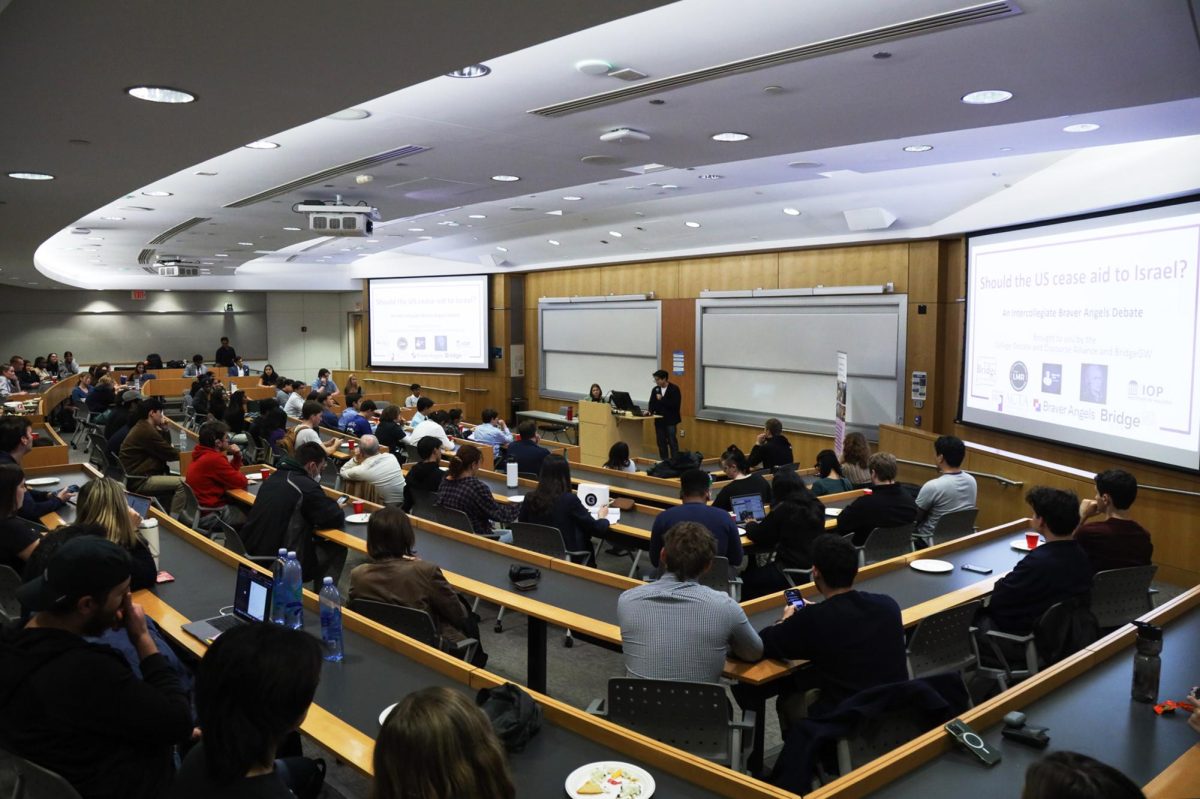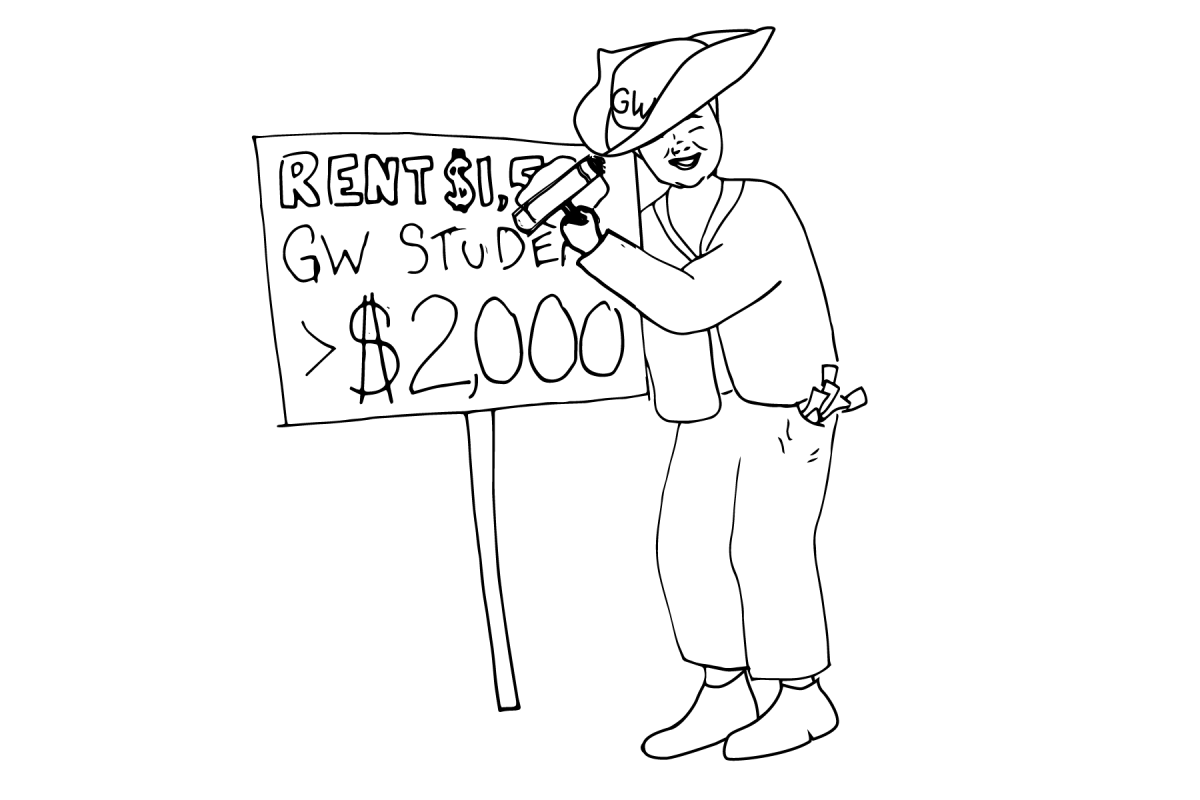The GW chapter of the Pi Kappa Alpha fraternity was suspended by the University until 2001 after an investigation this week into the hospitalization of a pledge, according to a letter from GW administrators to the Interfraternity Council.
The suspension came after the fraternity was disciplined last winter after an incident in which pledges were covered with condiments.
Pi Kappa Alpha President Leonard Semon said Wednesday the fraternity will appeal the suspension.
He said the University did not follow section 5B of the Guide to Student Rights and Responsibilities, which says students have the right to “notice of charges whenever formal action upon such charges is initiated.”
“The charge was levied with no notice and no chance for refutation,” Semon said. “We were given no chance to defend ourselves and that’s the basis of our appeal.”
Mike Walker, senior assistant dean for Community Living and Learning Center, said, “We received a report that a GW student was sent to the hospital because he had drunk copious amounts of alcohol. Through an investigation, we realized that two active members provided this individual and three other pledges with excessive amounts of alcohol during a pledge event.”
Semon denied that the event in question was a pledge event, calling it a gathering of brothers and pledges that was not approved by the fraternity.
Walker said the University no longer recognizes the fraternity.
He said the University made an agreement with Pi Kappa Alpha after last winter’s incident, but would not elaborate further except to say that the fraternity’s violation of that agreement led to its suspension.
“Part of this decision is a function of their conduct last year,” Walker said. “They were placed in a status called `receivership.’ They were not functioning, as of this year, as a fraternity in good standing.”
Semon said the fraternity’s international headquarters will assist the chapter in the appeals process.
Chuck Hunt, director of service for Pi Kappa Alpha’s international chapter headquarters, said the international chapter is making inquiries separate from the University’s investigation.
“From my standpoint, the handbook states the policy, and they can take the appropriate steps to appeal,” Hunt said. “If there is a case, we will support our chapter. The entire chapter should not be punished because the event was not sponsored by them.”
The international chapter received no official letter from the University documenting the suspension, Hunt said.
The University investigation was conducted by Karen Warren, coordinator of Student Judicial Services. A Pi Kappa Alpha pledge, who Walker would not identify, discussed the event with Warren.
The information gleaned at that meeting and the current status of the fraternity led to the University’s decision to suspend the fraternity, Walker said.
Hunt said the international headquarters will not determine the chapter’s standing until the appeals process has been completed and it receives a written report from the chapter.
Hunt said a member of the international chapter’s board of trustees had been scheduled to meet with the fraternity prior to the allegations. IFC President Ethan Baumfeld said the board member was on campus when the fraternity was suspended.
Hunt said recent national problems with fraternity hazing and Pi Kappa Alpha’s recent removal from Tulane University’s campus have raised questions about the fraternity’s practices. Hunt said the incident at GW is not comparable to the ones at Tulane and other universities.
“It’s sad that these cases do take place. They happen on an individual basis,” said Hunt. “Certain people within each chapter cause the problems.”
Hunt said Pi Kappa Alpha does not condone hazing of any sort and the members of each chapter are expected to maintain the policies as determined by their university.
At an IFC meeting Nov. 4, fraternity members expressed concern about hazing following the announcement of Pi Kappa Alpha’s suspension.
“As a result of the suspension, the University is very concerned about these types of situations being prevalent,” Baumfeld said.
To reinforce the University’s zero-tolerance hazing policy and to show support for the Greek-letter community, a meeting with the presidents of all recognized fraternities and sororities will be held Friday, according to Vice President for Student Academic and Support Services Robert Chernak.
“We don’t want anyone to think that we are on a witch hunt,” Chernak said. “We do want to work with our Greek-letter organizations. But, we also want to remind them that they have certain responsibilities.”
“Our challenge has been to get our Greek-letter community to understand what our standards are,” Walker said. “Obviously, we are concerned about what’s going on in the nation and here. We’d just like to reach full-compliance with our hazing and alcohol policies.”






